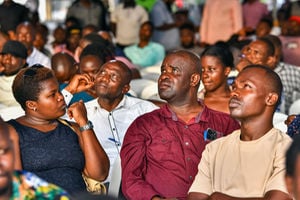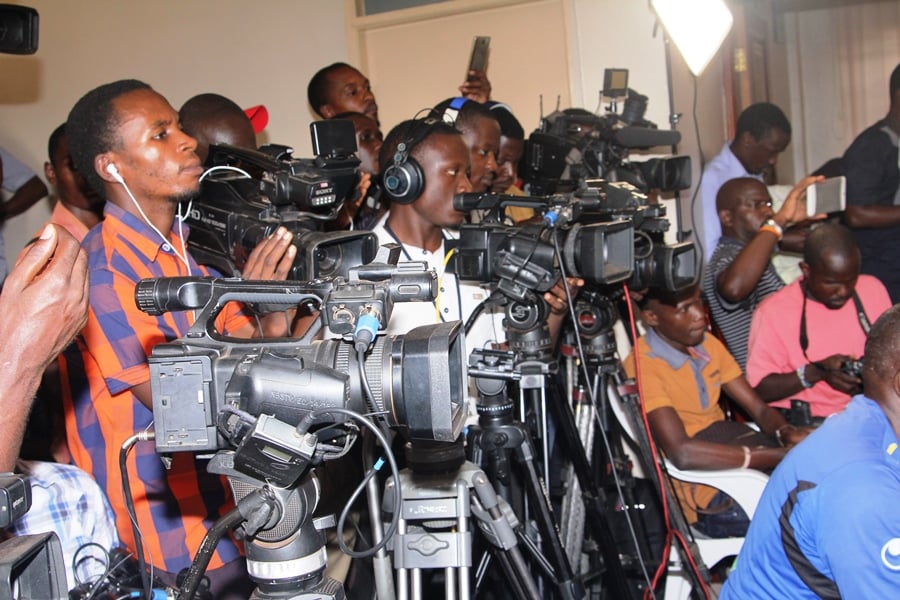
Mr Charles Onyango-Obbo
There is growing anti-tax agitation in Uganda, and several African countries. It’s therefore the right time to write about toilet paper. Yes, toilet paper.
A few days ago Ugandan traders paused their strike over the Electronic Fiscal Receipting and Invoicing Solution (EFRIS) for smaller businesses. There are reports that they will return to it in two weeks a fury. Yes, EFRIS isn’t a tax. It is akin to your church abandoning the basket, and unveiling a Momo Paybill to collect the tithe. The protest against it must therefore be understood as anger against tax. The traders did something quite remarkable in Uganda today. They went to a meeting with President Yoweri Museveni, then walked out on him in protest when they didn’t like the story he was selling them.
If one gets down deep on it, it is almost meaningless to protest that taxes are too high (as many unhappy taxpayers do), or that they are few or relatively low (as President Museveni did). There isn’t too much in good or bad tax policy. What should matter more is whether there is a good or bad economy.
That is where our humble toilet paper comes in. We rarely complain about the cost of toilet paper. Some might quibble about the cost of a 10-pack, yes, but no one ever complains about the cost of a single roll of toilet paper.
ALSO READ: Uganda does not have many taxes–Museveni
We primarily need toilet paper because we eat. Everyone instinctively knows that given the cost of food, the value of cooking it, and how much a single roll of toilet paper covers, effectively toilet paper is free. If a roll of toilet paper costs Sh1,500 and you use one over a couple of days to manage the outcome of food intake worth even just Sh250,000, without using a calculator and doing some fancy maths, you figure that that price is a once-in-a-lifetime bargain.
Thus, some of the highest personal income tax rates in the world are found in Ivory Coast (60 per cent), Finland (56.95 per cent), and Denmark (56 per cent). In Uganda, it is 40 per cent. However, Ugandans are very angry, as are the Ivorians. The Finns and Danes are not. Finland is also the happiest country in the world, despite the high taxes, and Denmark fourth happiest. Ivory Coast is 96th and Uganda 117th out of 143 in the 2024 World Happiness Report.
The thing is, even if 65 percent of your income is taken up in taxes and statutory deductions if the remaining 35 percent is like toilet paper; gets you decent housing, healthcare, education for your kids, puts food on the table, pays the utility bills, is enough for you to pay your installment on the mortgage and car lease, cover your recreation bill, and you have enough left to save a bit too, that 65 percent rate of itself isn’t a big deal. By contrast, you can have only 10 percent of your income taken up by tax, and if the remaining 90 percent can’t get you one-third of the above things, you will be angry with the tax collector and the state that imposes the tax.
ALSO READ: MPs okay tax on gifts
ALSO READ: Pay VAT, Efris has no problem- Museveni
Until recently, Nigerians paid virtually no taxes. But they were always angry with the governments and had many coups. President Goodluck Jonathan (2010 to 2015) was a one-term president, bundled out disgracefully by voters unhappy about the economy (and security) after one term. Nigerians paid more taxes under President Muhammadu Buhari who followed, and he got two terms.
Today Nigeria has the second lowest tax rate in Africa after Mauritius. The problem with Nigeria is that it needs a lot of toilet paper. It has the continent’s second-largest economy, but at the individual level, the economy is bad. Housing is nearly impossible to find and is outrageously expensive. Electricity is hard to come by, and people resort to expensive private solutions. Good healthcare is expensive. A decent education (available in private schools) costs an arm and leg. A desperate people are reaching for salvation, with the result that Nigeria, according to some counts, has more churches than hospitals, schools, and factories combined. Though they take home almost double the percentage of their income than Ugandans, it gets them less.
If the economy was good; meaning there was housing in sufficient quantities and affordable prices; if education was affordable; if loans were available to businesses at 2.5 percent; if electricity cost one-third of what it does today; if there was a mass transport system with pocket-friendly fares; if Ugandans didn’t have to sell a cow just to get a family through treatment for a single bout of malaria, EFRIS would have happened quietly outside the headlines. It would have been like toilet paper.
To get to the toilet paper sweet spot, we need to steal a trick from something familiar – the mobile phone industry. To that, next week.
Mr Onyango-Obbo is a journalist, writer and curator of the “Wall of Great Africans”
Twitter@cobbo3






